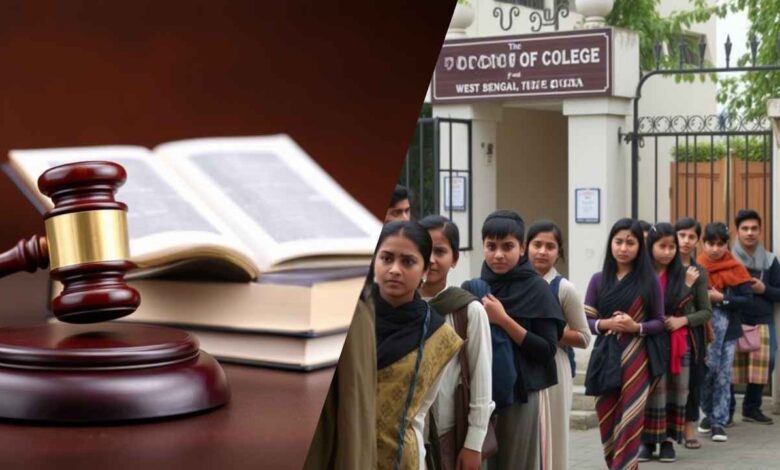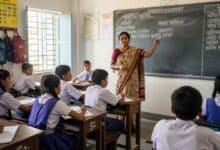West Bengal OBC Case: An ‘Excuse’ or a Stay Order? Complexities in School-College Admissions and Court Directives

OBC Reservation Case: A complex situation has recently emerged in West Bengal concerning the OBC (Other Backward Classes) reservation policy and its implementation, particularly affecting student admissions in schools and colleges. Observations and directives from the Kolkata High Court, and subsequently the Supreme Court, have brought this issue to the forefront of public discussion. The role of the state government and the actions of various educational institutions are also intrinsically linked to this ongoing debate.
Core Issue and Court Directives
The Calcutta High Court, specifically a division bench comprising Justice Tapobrata Chakraborty and Justice Rajashekhar Manta, delivered a significant ruling. According to this judgment, only the 66 OBC categories classified before 2010 are to be considered valid for reservation benefits. This implies that new OBC categorizations or certificates issued based on surveys conducted after the Trinamool Congress government came to power in 2011 cannot currently be used for admissions or employment.
In connection with this, a contempt of court case also surfaced, alleging that the state government attempted to use post-2010 OBC certificates for recruitment in a cooperative. This led to the state’s Chief Secretary, Monoj Pant, having to apologize to the court. Justice Manta clarified that the court had not issued any stay order on admission or recruitment processes.
The state government approached the Supreme Court seeking a stay on the Kolkata High Court’s ruling but was unsuccessful in obtaining one. Subsequently, the state government appealed to the Supreme Court to dismiss the Kolkata High Court’s order, and during the hearing, informed the apex court that they have initiated a new survey for OBC categories.
Impact on Educational Institutions
This legal imbroglio has directly impacted various educational institutions across the state. Admissions for the Joint Entrance Examination and first-year college courses were reportedly stalled due to the OBC reservation issue. In many instances, authorities cited pending court cases and stay orders, even when no such stay was actually in place.
A media report highlighted that, allegations arose that principals of 66 government-run schools received verbal instructions from the school education department to not publish merit lists, citing the wait for the court’s decision, despite the next hearing being months away. Admission processes at Kolkata University and Jadavpur University were also reportedly held up. When Jadavpur University sought clarification from the school education department, they were advised to consult with their lawyers.
A media report highlighted that 62 government schools are facing uncertainty in admitting students to class 11 due to the pending Supreme Court case on OBC reservation. An assistant master-in-charge from a government high school in Hooghly mentioned their inability to publish the merit list for class 11 admissions and feared conflicting instructions regarding OBCs after admissions commence.
Conclusion
The OBC reservation issue and its application to school and college admissions in West Bengal are at a critical juncture. The interplay of court directives, state government actions, and the responses of educational institutions has created a complex scenario. Ensuring that students’ futures and their right to education are not compromised is paramount. Transparency and prompt decision-making are crucial in navigating this situation effectively.

